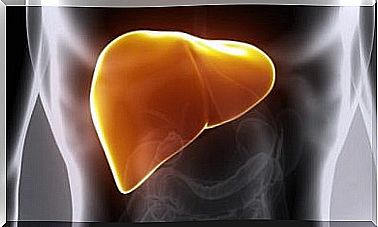7 Bad Habits That Can Affect Thyroid Health
The thyroid is a bilobed gland in the front of the neck, above the clavicle. It is an endocrine organ whose main function is to secrete hormones. Thus it regulates many of the vital activities of the organism.
We emphasize that it is decisive for metabolic functions. It also participates in mood, heart rate, and body temperature.
Due to this, its malfunction brings with it a series of health consequences. If not controlled, it significantly influences the quality of life.
For this reason, it is important to know what habits can affect you and, of course, take preventive measures before a serious problem occurs. Next we want to share the 7 most common so that you try to avoid them as much as possible.
7 bad habits that affect the thyroid
1. Smoking
Excessive cigarette smoking increases your chances of thyroid disease. The toxins they release affect the health of the gland.
Although its main consequences are in the respiratory system, it is not unusual for smokers to represent a large part of patients with thyroid conditions.
This is because tobacco lowers thyroid stimulating hormone (TSH) levels. This hormone is involved in metabolism, eye and cardiovascular health.
2. Sedentary lifestyle
Sedentary lifestyle influences the development of several disorders that affect physical and emotional health. Among them is damage to the thyroid gland.
Inactivity increases the tendency to accumulate fat. This can lead to being overweight, obese, and various metabolic problems such as diabetes. Among the latter is also hypothyroidism caused by decreased secretion of thyroid hormones.
Hypothyroidism affects several areas. It makes it difficult to burn fat, increases the risk of heart disease, alopecia, fatigue …
3. Poor stress management

Not knowing how to manage stress that occurs in everyday life can be a trigger for thyroid malfunction.
The endocrine system is sensitive to this emotional state. When it occurs intensely, it impacts thyroid hormone levels. As a consequence, hormonal imbalances occur that affect the health of other systems in the body.
4. Low iodine diet
Low levels of iodine in general and especially in the diet are a common cause of thyroid problems. Among them the most common is hypothyroidism.
The body needs this substance for the production of thyroid hormones. Therefore, it is necessary to ingest adequate amounts. We show you some foods rich in iodine:
- Sea salt.
- Marine vegetables.
- Blueberries
- Natural yogurt.
- Beans.
- Potatoes.
- Green peas.
- Pineapple.
- Chocolate.
5. Alcoholic beverages

The detrimental effects of heavy drinking are not a new topic. Among these, it is worth mentioning that the thyroid is one of the most affected organs.
The liver is the most affected by being in charge of filtering and metabolizing these drinks. However, its toxins travel through the bloodstream and alter the production of hormones, among other processes.
Its intake can influence difficulties in losing body weight. If the excess continues, it participates in the development of the main metabolic problems.
6. Gluten consumption
Patients with celiac disease or gluten intolerance may have their thyroid health affected due to the effects of gluten proteins in the body.
Since the immune system attacks healthy tissues by detecting this substance in the body, it can cause various problems, the most common in the intestine, but also in the thyroid.
It is important to rule out gluten intolerance if no other explanation is found for the thyroid disease. For this we must always go to the doctor and never start a restrictive diet, as it may not be the solution and harm us
7. Excessive intake of soy

We cannot deny that soy is a food with multiple nutritional properties that many times benefit our health.
However, its consumption should not be excessive. In high amounts it can inhibit the absorption of thyroid hormone. In fact, those who already have a diagnosis of thyroid disease should limit or completely eliminate this food and all its derivatives.
Conclution
Can you identify these bad habits? If so, try to avoid them as much as possible as a preventive measure to protect your thyroid. Even if you don’t have problems with it, it is always better to prevent problems.
If in doubt, do not hesitate to consult a medical professional, as there are many causes that can alter the functioning of this gland.









